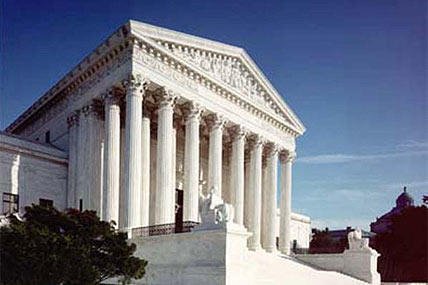It’s a new day for married gays and lesbians in the military as the Supreme Court on Wednesday overturned the federal Defense of Marriage Act.
The law has barred the services from extending to same-sex families the kinds of benefits long given to heterosexual married couples.
The 5-4 court ruling is the most significant advance for gay and lesbian troops since the ban on homosexuals serving openly in the military was repealed in 2011. But while the end of Don’t Ask, Don’t Tell enabled gays to serve openly a range of healthcare, housing and other benefits remained closed to their spouses and partners because of DOMA.
The high court ruled in the case of U.S. v Windsor that the 1996 law is unconstitutional because it deprives equal protection of the law as guaranteed by the Fifth Amendment. The ruling struck down Section 3 of the law that said the federal government may only recognize marriages between a man and a woman.
The case was brought by Edie Windsor, who married partner Thea Spyer in Canada and was living in New York in 2009, when Spyer died. Winston was hit with more than $300,000 in federal estate inheritance taxes because she did not qualify for the unlimited spousal deduction available to heterosexual married couples.
Although the Pentagon recently authorized military ID cards for same-sex spouses and the right to visit sick and injured members while in hospital, DOMA has prevented the DoD from granting same-sex military families the full range of benefits.
But not anymore.
“Today, we congratulate plaintiff Edie Windsor, her incredible legal team, and all those who have stood up for the freedom to marry in America,” Army veteran and OutServe-SLDN Executive Director Allyson Robinson said in a statement. The organization represents actively serving lesbian, gay and, bisexual military members.“This victory is especially sweet for our nation’s lesbian, gay, and bisexual service members, who can now not only serve openly, but can serve knowing that their loving, committed, and legal marriages will be recognized by the military they serve and the nation they protect,” Robinson said
Iraq and Afghanistan Veterans of America, the only major veterans’ organization to have supported repeal of Don’t Ask, Don’t Tell, also sided with the plaintiffs in the Windsor case and submitted an amicus brief arguing for overturning DOMA.
“This is a historic day for those who believe in and fight for equality under the law for all Americans,” IAVA Chief of Staff Derek Bennett said in a statement. “Under DOMA, LGBT service members who protect our country are denied benefits afforded to their peers. Thankfully, today, we have protected the rights of all troops, veterans and their families.”
Bennett called the court’s decision “a victory for the strength of our armed forces.”
“Support for military families is one of the most critical elements of a strong and healthy fighting force,” he said.
Conservative groups have predicted that overturning DOMA will hurt the military. The Chaplain Alliance for Religious Liberty, which weighed in with an amicus brief in support of the law, has said DOMA has prevented Christian chaplains from having to provide support services and assistance to servicemembers whose lifestyle violates some chaplains' moral and ethical codes.
“But if this Court strikes down DOMA … that will not only sweep aside the carefully calibrated efforts to balance religious liberty with competing interests, it will also intrude into the lives and lived convictions of our Nation’s religious service members,” the group said in its brief.






























